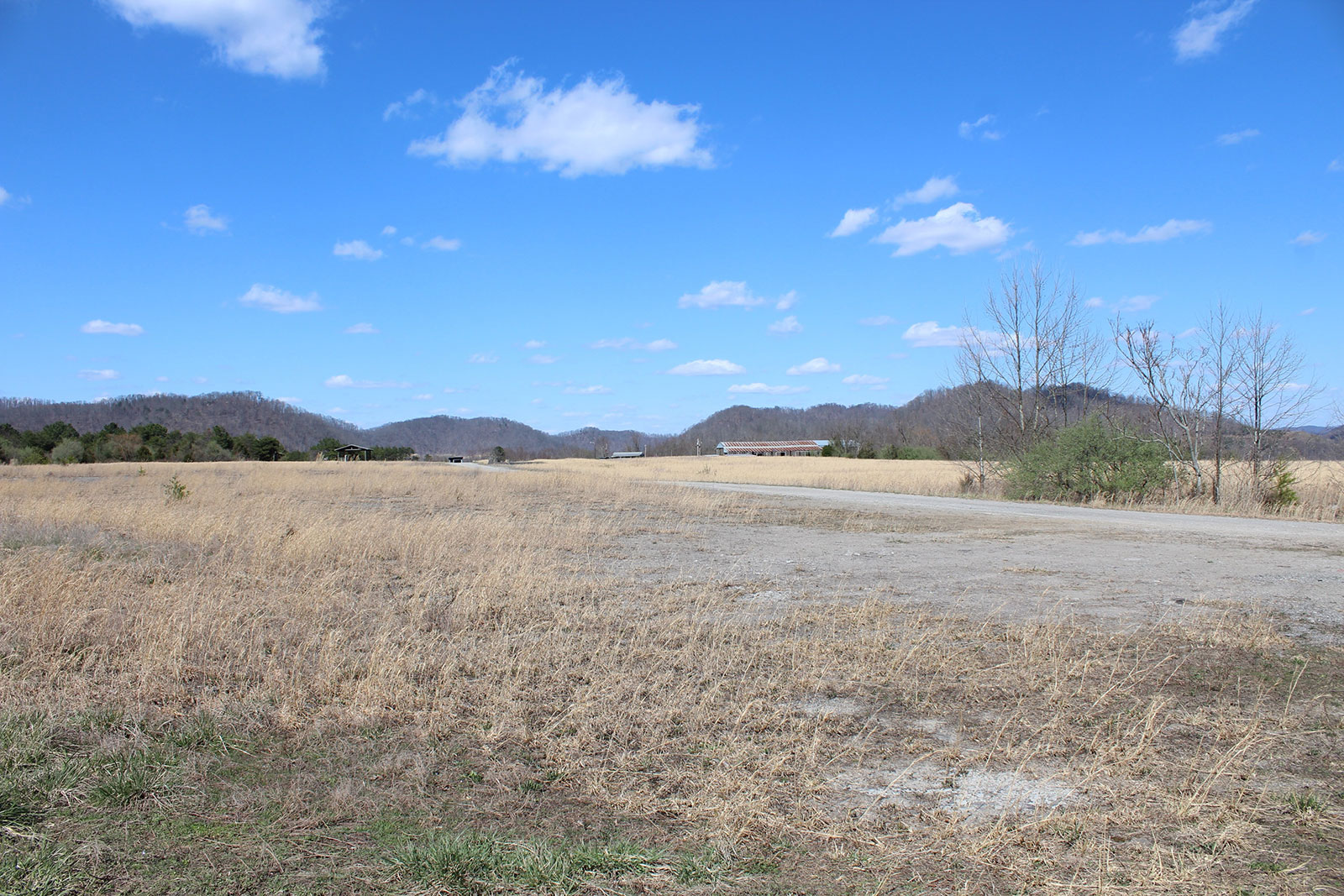On a freezing cold Wednesday afternoon in eastern Kentucky, Taysha DeVaughan joined a small gathering at the foot of a reclaimed strip mine to celebrate a homecoming. “It’s a return of an ancestor,” DeVaughan said. “It’s a return of a relative.”
That relative was the land they stood on, part of a tract slated for a federal penitentiary that many in the crowd consider another injustice in a region riddled with them. The mine shut down years ago, but the site, near the town of Roxana, still bears the scars of extraction. DeVaughan, an enrolled member of the Comanche Nation, joined some two dozen people on January 22 to celebrate the Appalachian Rekindling Project buying 63 acres within the prison’s footprint.
“What we’re here to do is to protect her and to give her a voice,” DeVaughan. “She’s been through mountaintop removal. She’s been blown up, she’s been scraped up, she’s been hurt.”
The Appalachian Rekindling Project, which she helped found last year, wants to rewild the site with bison and native flora and fauna, open it to intertribal gatherings, and, it hopes, stop the prison. The environmental justice organization worked with a coalition of local nonprofits, including Build Community Not Prisons and the Institute to End Mass Incarceration, to raise $160,000 to buy the plot from retired truck driver Wayne Whitaker. He’d only just purchased it as a hunting ground, and it was an easy sell. “There’s nothing positive we’ll get out of this prison,” he said.
The penitentiary has been a gleam in the eye of state and local officials and the Bureau of Prisons since 2006. It has always sparked sharp divisions in Roxana and beyond, and was killed in 2019 after a series of lawsuits, only to be quietly resurrected in 2022. Last fall, the bureau took the final step in its approval process, clearing the way to begin buying land.
Some in Letcher County, which saw 5.2 percent of its population leave between 2020 and 2023 and grapples with a 24 percent poverty rate, believe the prison will replace jobs and tax revenue lost with the decline of coal. Federal prison construction has boomed in central Appalachia as mining has faltered, with eight of the 16 penitentiaries built there, often atop mines, located in Kentucky alone.
“Those are all expressions of the economic crisis that has occurred due to the collapse of the coal industry, and for which the prisons and the jails are proposed,” said Judah Schept, a professor of justice studies at Eastern Kentucky University. In his book Coal, Cages, Crisis, Schept noted that mine sites are considered ideal locations for prisons or a dumping ground for waste, rather than places of ecological value, as some biologists have argued. The Roxana site has been reclaimed, meaning re-vegetated with a forest that now shelters a number of rare species, including endangered bats.
Opponents argue that a prison will bring more environmental problems than jobs. Letcher County is one of 13 counties ravaged by catastrophic flooding in 2022, a situation exacerbated by damage strip mining caused to local watersheds. The prison slated for Roxana will exacerbate the problem. The Bureau of Prisons estimates it will damage 6,290 feet of streams and about two acres of wetlands. (The agency has promised to compensate the state.)

Jordan Mazurek
DeVaughan said the purchase also is a step toward rectifying the dispossession that began with the forced removal and genocide of Indigenous peoples. The Cherokee, Shawnee, and Yuchi made their homes in the area before, during, and after colonization, and their thriving nations raised crops, ran businesses, and hunted bison that once roamed Appalachia. In all the time since, coal, timber, gas, and landholding companies have at times owned almost half of the land in 80 counties stretching from West Virginia to Alabama. Several prisons sprang from deals made with coal companies, something many locals consider the continuation of this status quo.
Changing that dynamic is a priority for the Appalachian Rekindling Project, which hoped to buy more land to protect it from extractive industries and return its stewardship to Indigenous and local communities. DeVaughn said Indigenous peoples throughout the region will be welcome to use the land as a gathering place.
The Eastern Band of Cherokee Indians, Cherokee Nation, and United Keetoowah Band did not respond to requests for comment.
DeVaughan sees its work establishing a new vision of economic transition for coalfields, one that relies less on “dollars and numbers” and more on “healing and restoration” of the land and the Indigenous and other communities that live there. She is working with the Cheyenne and Arapaho nations to acquire a herd of bison and plans to work with local volunteers, scientists, and students to inventory the site’s flora and fauna.
The plot sits at the edge of the 500-acre site outlined for the prison, which would hold over 1,300 people in the main facility and adjoining camp. A representative of the Bureau of Prisons told Grist land acquisition will continue.
This isn’t the first time the agency has hit such a pothole. Six years ago, Letcher County master falconer Mitch Whitaker refused to sell nearly 12 acres, requiring the agency to revise its plans. The prospect of doing so again led Representative Hal Rogers, who represents the area in Congress and has been the leading champion for the prison, to lambaste ARP and its allies.
“This land purchase comes as no surprise from a group led by Kentucky outsiders and liberal extremists,” he said in a statement.
But many of those on-hand that Wednesday to celebrate the sale were local residents like Artie Ann Bates, who grew up in Letcher County and saw waves of strip mining damage her family’s land. “It’s just really hard seeing a place you love be destroyed,” she said. The purchase is a “sign of progress,” she added, bundled up at the foot of the mine site alongside her neighbors.
This story was originally published by Grist with the headline Bison, not prison: Activists buy a prison site to rewild the land on Feb 3, 2025.
A coal mine was the first to wreck the land. Now activists want to keep another extractive industry from taking root there: prisons. Justice, Protest Grist





